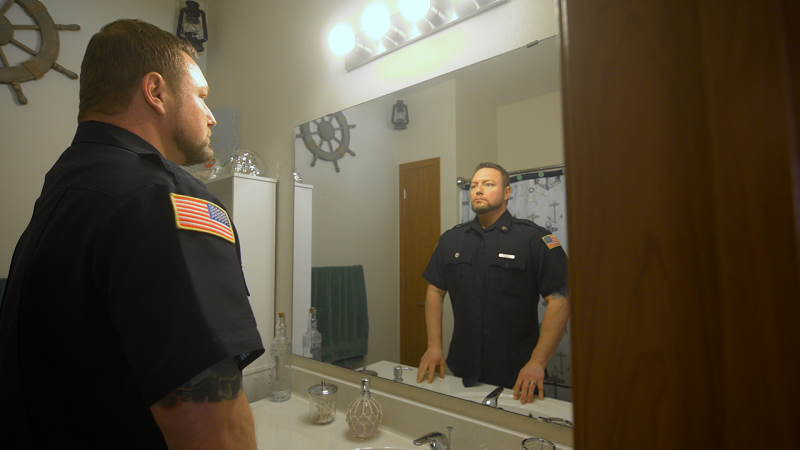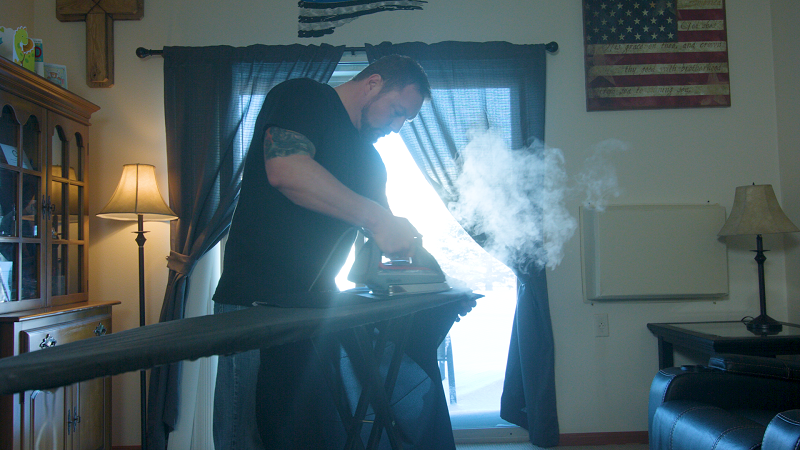How the Corrections Career Can Impact the Families of Officers
Caterina Spinaris, Ph.D., LPC, Founding Director of Desert Waters Correctional Outreach, has 21 years of experience working with correctional officers and staff of other disciplines battling work-related mental health challenges. Spinaris has learned first-hand how correctional officers’ families can be affected. She provides corrections-specific and research-based training to limit the detriment brought back home by the officer. The vast majority of what you are about to read below is from Caterina’s article, A Family Affair, and has been facsimiled with Caterina’s permission. Her article, along with direct quotes from industry professionals, will explore the mental hardships correctional officers face.
When a corrections officer accepts the oath of their badge, those closest to them may be unaware of how their lives will likely change. Like any job in law enforcement, a career in corrections not only impacts the officer's life but also the lives of their family and inner circle. Officers must be aware of and recognize how their job can affect those around them.
What should families of corrections officers know before officers accept their oath? What should they expect? How can officers foster their interpersonal relationships? While every situation is unique, there are commonalities in the concerns and challenges facing families whose loved ones work in corrections. This blog breaks down some of the struggles families of corrections officers face and how COs can work to nurture their relationships through the hardships that accompany this job.

The Changes
A job in corrections is very different from the typical 9-5. For starters, it’s typically not 9-5. The hours, stress, responsibilities, and emotions vary daily. This job is not for the weak, it’s physically, mentally, and emotionally demanding. There are a wide variety of changes and sacrifices to be aware of when accepting a role as a correctional officer, for both the officer and their family. For example, family members of officers will likely struggle to grasp the reality of:
The lifestyle changes that shift work, overtime, and changing schedules bring (changes in rhythms, traditions, and practices)
Officers experiencing chronic physical and emotional exhaustion, resulting in a lack of energy or motivation after work
Why there may have been an increase in alcohol or tobacco consumption, engaging in other compulsive and escapist behaviors (excessively playing video games, gambling, or online sexual activities), experiencing an increase in anxiety or depression, and displaying signs of post-traumatic stress (not sleeping, kicking/screaming in sleep, reactive)
The increase in the use of profanity or newfound humor, often regardless of who is present
Why their loved one is becoming harder, more calloused, or judgmental of others
Why an officer seems indifferent when they hear about instances of harm befalling people and their apparent lack of compassion
Why a CO talks down to their family in ways that may be demeaning, insulting, and hurtful, or ordering their family around and trying to control their every move, sometimes even using the very same language that they use at work
Why the officer is becoming increasingly stricter with their children, overly worried about their safety, laying down rigid rules, and running background checks on their children’s friends and their parents
Why the officer now turns down invitations to family gatherings, school events, or other social activities
Their ability to intimately “connect” with loved ones may be impacted as time goes by, possibly resulting in emotional distance
Unfortunately, there are MANY more changes that families of corrections officers face. These changes in the officer’s demeanor, reactions, and overall character can spiral into deeper issues within their relationships.

The Impact
From day one, officers and family members observe immediate changes that adversely affect their relationships. With all that corrections officers see daily, there's a burden on their shoulders. The stress a corrections officer faces daily is bound to spill over into their personal life if it is not properly addressed. So, how an officer thinks and reacts will change over time, which is hard to control and avoid. This may come off as heightened anger or mistakenly taking their emotions out on their loved ones.
When you work in an environment like this, the stress and unpredictability will start affecting the view of the world and people around you, even your loved ones. You tend to see the evil in people and start to expect it from everyone. At the point you explode from stress and anxiety, you have no control over who you are.
Anthony Gangi
Correctional officers are constantly surrounded by some of the worst people, forcing them to see and hear of unspeakable and even unthinkable crimes. This results in officers noticing things they might not have or paying more attention to the details of their family's lives because when you see the worst, it’s hard to see the best in people. COs have an up-close look into what some people are capable of, forcing them to be “paranoid”.
After working in corrections for years, you have a heightened awareness because you know that things can happen in a split second. That being said, we have to give ourselves the space to decompress or the ability to turn off that mindset in a space where you feel safe to be vulnerable.
Constantine Alleyne
The separation created between correctional officers and their families can result in an array of issues. For example, if an officer is disengaged with family-related events, their family members will likely feel alone. Their partner may feel more like a single parent than a partner in a marriage, managing the household and raising the children, while the children may feel disconnected or estranged from their parent.
This naturally strains the relationship, potentially leading to arguments. Luckily for the officer, they are likely to win verbal clashes as they are well-practiced at doing so at work. Only the victory at home comes with a steep price tag of emotional distancing and something dying inside after each such fight. The fact that the officer’s fuse keeps getting shorter may quite simply scare their loved ones. As a result, they might avoid spending time together or discussing sensitive or controversial family needs and issues, again leading to emotional distancing and disconnection.
With this disconnect and built-up tension, the relationship between an officer and their family will steadily strain. And without proper communication and working to solve the challenges within their interpersonal relationships, the divide will continue to grow.
The Repair
If the issues above are left unaddressed, they will eventually hurt marriages, parent-child relationships, and other closely-knit relationships. Families cannot continue life as usual after one of them is hired on in corrections. Proactive measures, preparation, and new learning are needed to protect your most valuable earthly investment - your family.
Explaining to your partner what life in the field is like often proves to be too unpleasant, too energy-consuming, or too difficult. You don’t want to be talking about work when you are home. You also do not want to scare or traumatize your spouse. So, conversations might tend to stay shallow and superficial, with you typically answering the question, “How was your day?” with “Fine,” regardless of what has actually happened that day at work. After a while, your spouse may feel like they do not know you anymore, and/or they may stop asking you questions.
I truly felt after 23 years in this profession that I had adjusted well to the day-to-day grind we endure. Like all of you, I have had my mix of good days and bad. I have seen my share of people come and go on both sides of the bars. However, it wasn't until recently that I truly found myself questioning my place in this cycle. It isn't the job; I know the job. It isn't the inmates; I know them better than I know some of my "friends". What I found myself questioning was where I lost my ability to "leave it at the gate" and why I didn't realize it was happening until I was consumed by it. It was changing me, changing my demeanor, changing my way of looking at life. Was it just me? I found myself thinking of work on my off time and hating the world when it was time to go back. I knew it was happening but didn't know why. I loved my job at one time. I just didn't know how to get back there.
Sergeant Jeffrey BegueStark County Sheriff’s Office
Caterina believes that it is also imperative, and a moral obligation, that corrections agencies help equip adult corrections family members with effective strategies for dealing with the “bleeding” of correctional work stressors into family life. Helping corrections families is not simply something to be addressed haphazardly, as an afterthought. Rather, this goal must be pursued rigorously and systematically, starting on graduation day at the training academy.
Being proactive is truly a win-win both for employees and their families, and for the agencies for which they work because an unhealthy family life will inevitably affect the agency’s work performance and employee retention.
If this reading hits home for you and you think it’s time to reach out for support, please visit Desert Waters Correctional Outreach to learn more about corrections-specific services Caterina and her team offer, which center on data-driven, skill-based training, research, and other psychoeducation products.
References:
Gangi, Anthony (2021). The long-term impact of working in a violent environment
Retrieved from https://www.youtube.com/watch?v=UmwUnyNfXEI
Spinaris, Caterina (2021). A Family Affair. Retrieved from https://desertwaters.com/wp-content/uploads/2021/08/Correctional-Oasis-09.2021.pdf

